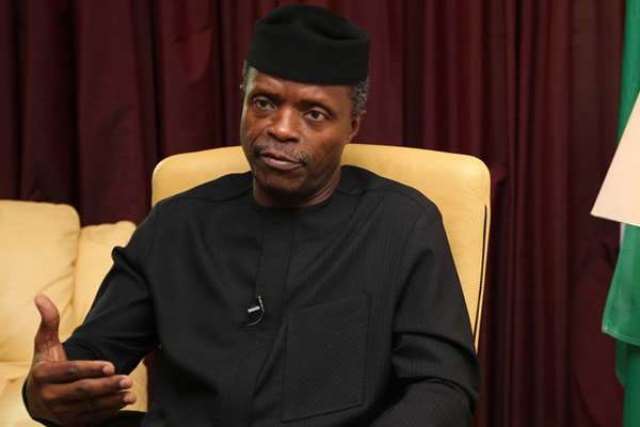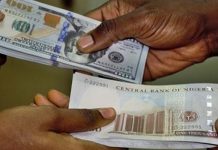Vice President Yemi Osinbajo said that the economic downturns experienced in the country have precluded the Federal Government from aggressively taxing the citizens as “would ordinarily be expected.”
He said this while hosting a delegation of the Chartered Institute of Taxation of Nigeria (CITN) at the Presidential Villa in Abuja.
Osinbajo called for the need to widen the country’s tax net to accommodate more Nigerians eligible for paying taxes.
“We have had severe economic downturns which of course implies that we may not be able to collect taxes with the aggressiveness that would ordinarily be expected,” he said.
He continued, “I think the most important thing is that we must widen our tax net so that more people who are eligible to pay tax are paying. Several efforts have been made, and I am sure you are aware of the initiatives including the Voluntary Assets and Income Declaration Scheme (VAIDS) which was also an attempt to bring more people into the tax net, including those who have foreign assets.”
He said that the government had its eyes set on big tech firms doing “incredible volumes” in Nigeria and would ensure that they paid taxes according to the Finance Act.
“We have also recently taken a step with respect to a lot of the technology companies that are not represented here but who do huge volumes of business here.
“We have drawn up the regulations and we are prepared to go, and I think that we are at least in a good place to tap into some of the tax resources we can get from some of these companies,” he stated.
The Finance Act, in its stipulations of what makes a company eligible for paying taxes in Nigeria, said that a company is liable to pay tax if it “transmits, emits or receives signals, sounds, messages, images or data of any kind by cable, radio, electromagnetic systems, or any other electronic or wireless apparatus to Nigeria in respect of any activity, including electronic commerce, application store, high-frequency trading, electronic data storage, online adverts, participative network platform, online payments and so on, to the extent that the company has significant economic presence in Nigeria and profit can be attributable to such activity.
“If the trade or business comprises the furnishing of technical, management, consultancy or professional services outside of Nigeria to a person resident in Nigeria to the extent that the company has significant economic presence in Nigeria.”
Tax Increase?
Osinbajo noted that taxation in Nigeria remained one of the lowest and that an assessment of the situation in the country has led to the decision that tax levels would remain the same, as increased taxation would lead to disincentivising businesses and investments.
He said, “our tax rates are too low, comparing us to other places in the region where the rates are much higher.
“So, we have had to balance all of these issues because clearly, higher tax rates can be a disincentive to businesses and investments. In terms of domestic resource mobilization, we are trying to do the best we can given the present circumstances and I believe that there is room for improvement.”












